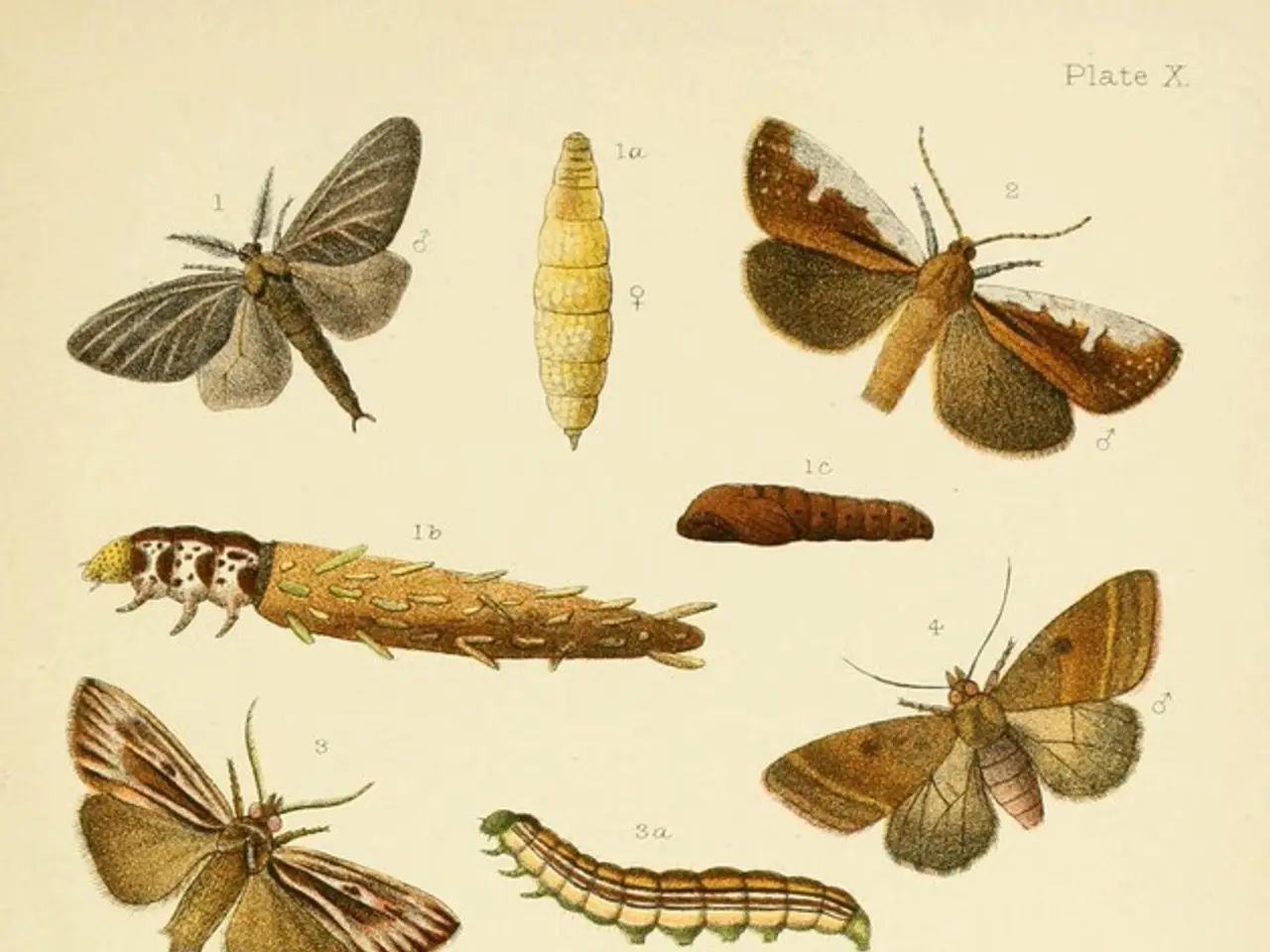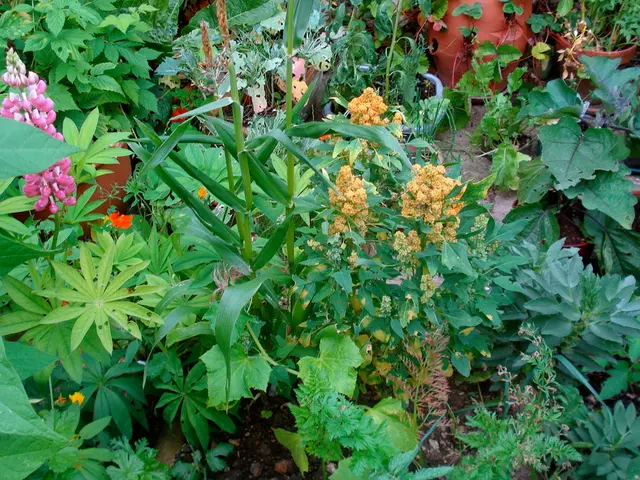Scientist advocates affection for wasps amid widespread dislike
In the heart of London, the UCL Grant Museum of Zoology has opened a captivating exhibition called "The World of Wasps." This unique display aims to shed light on the often-overlooked lives of wasps and their significant contributions to our ecosystem.
Professor Seirian Sumner, a behavioural ecologist at University College London (UCL), has dedicated her career to studying these fascinating insects. The exhibition, which runs until January 24, 2026, showcases her research and more.
Wasps are more than just pest controllers. They play crucial roles in pollination and biodiversity support. By visiting flowers to gather nectar for their offspring, wasps aid in food production and maintaining plant diversity. Moreover, they serve as hosts for many parasitic species, helping to balance insect populations within natural ecological networks and food webs.
One might be surprised to learn that wasps are nature's paper makers, with their nests containing three types of paper: an envelope for quick building, strong but light combs like layers in a high-rise building, and a third type that is very strong and squidgy. Some even believe that the invention of paper was influenced by wasp nest-making techniques.
Wasps are also a popular source of nutrition for humans, particularly in Asia, where they are prepared by boiling or freezing-drying the larvae and adding chili. Wasp larvae are high in protein and low in fat, making them an attractive food source.
The polistes paper wasp, in particular, is like the insect version of a meerkat, with individuals able to switch roles from queen to worker. This behaviour helps scientists understand the evolution of altruism.
Wasps have antibiotic properties in their venom and on their bodies, which they use to keep their prey disease-free. Researchers are exploring the potential of tapping into these microbial defenses to develop new medicines.
In a fascinating twist, some wasp venom may potentially be a cure for cancer. One study showed a Brazilian wasp's ability to kill cancer cells without harming surrounding healthy cells.
Charles Darwin, six months after publishing "On the Origin of Species," wrote a letter expressing doubts about the beneficent design of the ichneumonidae wasps, a family of parasitic wasps that lay their eggs in other insects and consume them from within. Despite this, the importance of wasps in our ecosystem is becoming increasingly clear.
The World of Wasps exhibition is a testament to the unseen lives of these often-misunderstood creatures. It serves as a reminder of the vital roles they play in our ecosystem and the potential benefits they hold for human health and wellbeing. So, next time you spot a wasp, remember: it might just be nature's unsung hero at work.
- Science continues to reveal the importance of wasps, even in unexpected areas like industry and health-and-wellness.
- Chronic diseases and cancer may have potential treatments hidden within the world of wasps and their venom.
- Wasps, beyond their role as pest controllers, contribute significantly to pollination and plant biodiversity.
- Workplace-wellness can be improved by understanding the contributions of wasps for biodiversity and food production.
- The polistes paper wasp exhibits a form of altruism similar to that seen in mammals like meerkats.
- Fitness-and-exercise routines can benefit from studying the physique and movements of wasps.
- Medical-conditions, such as neurological disorders, may be better understood by researching the behavior of wasps.
- The science of climate-change could learn from the adaptation strategies of wasps in response to environmental changes.
- Mental-health support can be extended to those who fear wasps due to misconceptions about their roles in the ecosystem.
- Men's health and wellbeing could be impacted by the nutritional value of wasps, as demonstrated in their consumption in some cultures.
- Skin-care and cosmetics companies may explore wasp-derived ingredients to improve their products.
- Therapies-and-treatments for various health issues can stem from the antibiotic properties found in wasp venom.
- Aging research can be advanced by studying the longevity of certain wasp species.
- Womens-health could benefit from discoveries about the reproductive strategies of wasps, such as their ability to switch roles from queen to worker.
- Parenting practices can be informed by the social organization and cooperation present within wasp colonies.
- Weight-management can be influenced by understanding the balance between food intake and energy expenditure in wasps.
- Cardiovascular-health can be improved through the regular observation and study of the pumping action of a wasp's heart.
- The manufacturing industry can find inspiration in the construction methods used by wasps to create their nests.
- Environmental-science can develop innovative solutions to environmental problems through the study of wasp adaptations.
- Finance, particularly within the Medicare sector, can be impacted by new medical breakthroughs utilizing wasp venom.
- CBD products may incorporate wasp-derived compounds to offer alternative treatments for various medical conditions.
- Health-and-wellness apps can incorporate educational content about the importance of wasps for ecosystem balance.
- Nutritionists can recommend foods rich in protein and low in fat, such as wasp larvae, to those seeking weight management.
- The study of managing autoimmune disorders can draw parallels from the immune system responses exhibited by wasps.
- Lifestyle magazines can feature articles on the fascinating world of wasps and their contributions to our lives.
- Fashion-and-beauty brands can create trends with natural, wasp-inspired designs, emphasizing sustainability and the importance of biodiversity.
- Cybersecurity and fintech businesses can utilize artificial-intelligence and data-and-cloud-computing to support research on wasps and advance understanding of their roles in the ecosystem.






